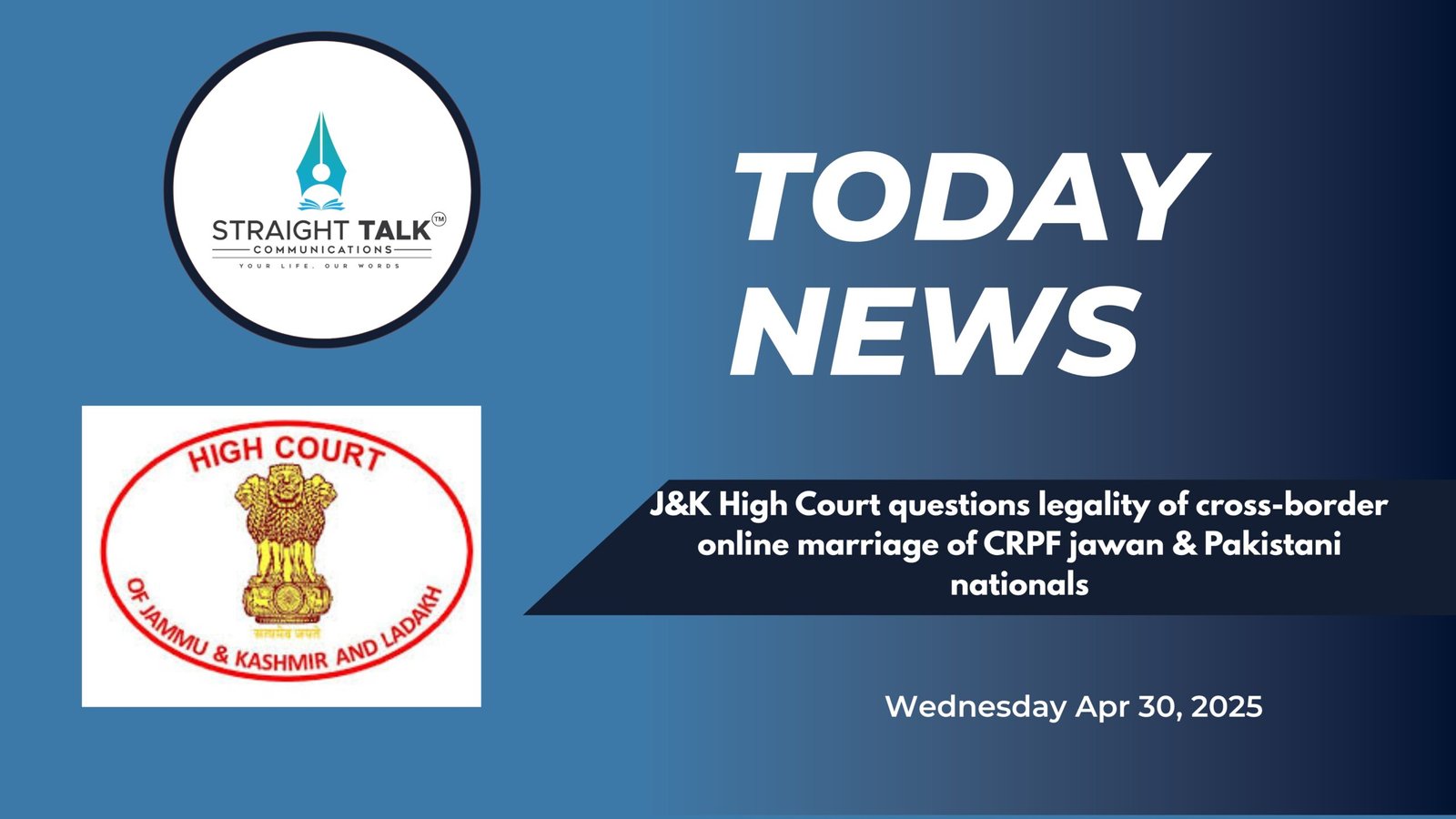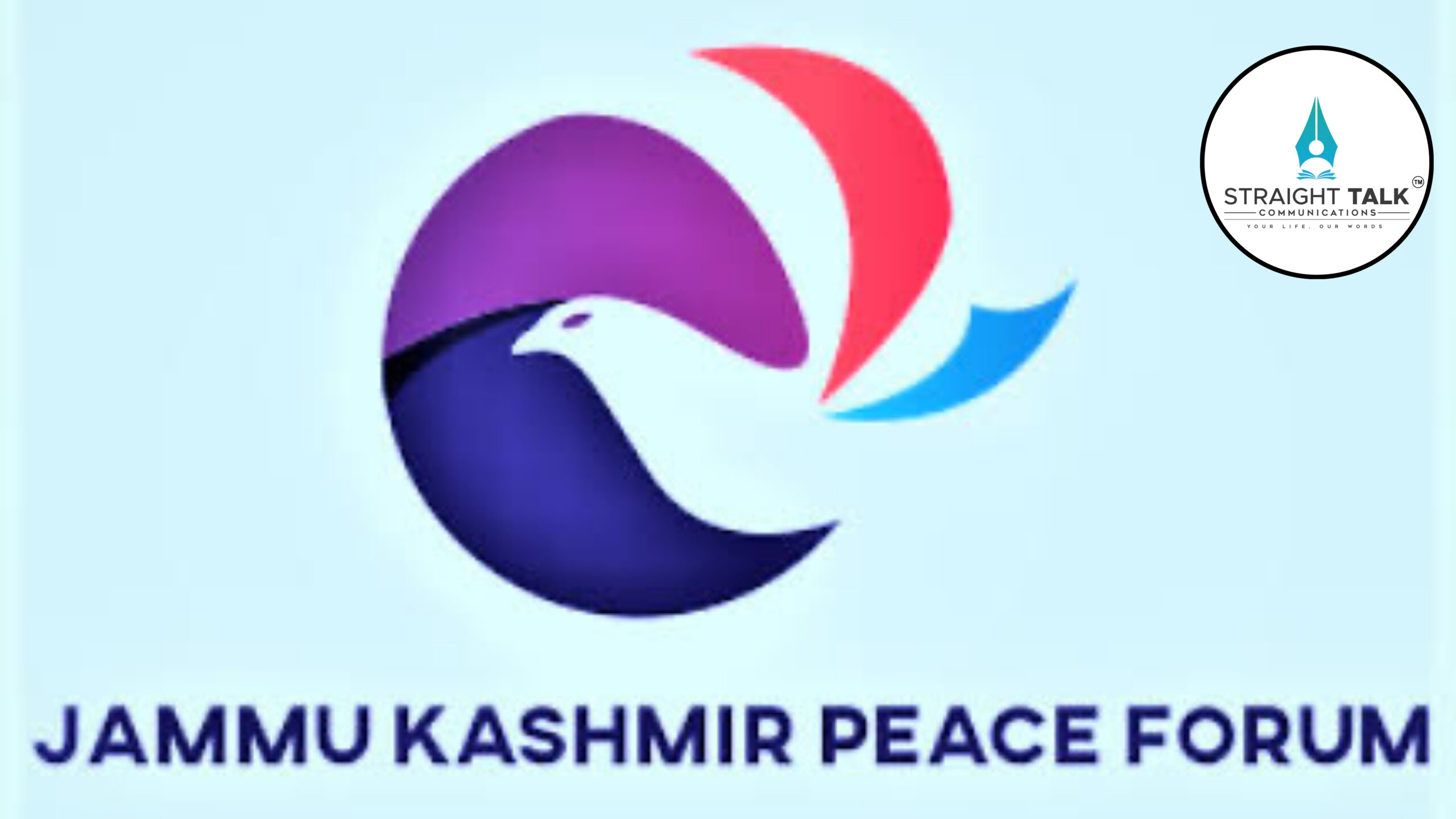J&K High Court questions legality of cross-border online marriage of CRPF jawan & Pakistani nationals

“Whether such type of marriage is permissible/recognisable in the eyes of law, is an aspect which requires attention of Government of India.”
STC MONITORING DESK
SRINAGAR, APRIL 30 (STC): Online marriage issues have knocked the doors of court where legality of such marriages face questions.
Actually, amid rising tensions in the aftermath of the recent Pahalgam terrorist Attack, the Government of India revoked all short-term visas granted to Pakistani nationals. As a result, a unique case involving cross-border online marriage in the court has assumed interesting dimensions. A Pakistani petitioner’s presence in India came under the scanner after the government revoked short term visas to Pakistani nationals.
Here are the details of the case:
The High Court of Jammu & Kashmir and Ladakh, while dealing with an unusual plea involving cross-border marriage and immigration on Tuesday questioned the legality of an online marriage between a serving CRPF personnel and a Pakistani national.
The order was passed by Justice Rahul Bharti in a writ petition filed by Munir Ahmed, a CRPF jawan, and his Pakistani wife.
The petitioners approached the court seeking relief after the Pakistani wife, who had entered India on a visitor visa, faced the prospect of deportation following the expiry of her visa on March 22, 2025. The couple claimed to have solemnized their marriage online, with the petitioner-husband in J&K and the wife in Pakistan, and presented a Nikahnama purportedly showing the place of marriage as Handwal, Jammu.
Justice Bharti, however, noted the discrepancy between the stated location of the marriage and the mode in which it was conducted, emphasizing that such an online marriage raises serious legal questions.
“Whether such type of marriage is permissible/recognisable in the eyes of law, is an aspect which requires attention of Government of India,” the court observed.
Amid rising tensions post the recent Pahalgam terrorist Attack, which claimed 27 lives in a terrorist attack, the Government of India had revoked all short-term visas granted to Pakistani nationals. As a result, the Pakistani petitioner’s presence in India came under the scanner.
While the petitioners argued that a Long-Term Visa application had already been submitted under a 2014 Home Ministry communication, the court held that the decision on granting such a visa squarely lies with the Government of India.
“It is for the Government of India to consider whether Long-Term Visa in favour of petitioner No. 2 to be issued or not even if there is a request made by and pending for grant of Long-Term Visa in faovur of the petitioner No. 2. The present actual status of the petitioner No. 2 is that of a Pakistani National entering and staying in India on Short-Term Visa that too which has expired”,the court recorded.
Importantly, the Court clarified that the case of the Pakistani petitioner is still under active consideration. “… As and when that consideration would come from the Government of India… she would accordingly become either the beneficiary or the non-beneficiary of the outcome,” Justice Bharti stated.
Meanwhile, the Court issued notice to the respondents and directed them to file a reply within ten days. It also scheduled the next hearing for May 14, 2025. The petitioner-wife’s ouster from the Union Territory will remain subject to the final outcome of the petition, the Court ordered. (Source: livelaw.in)







